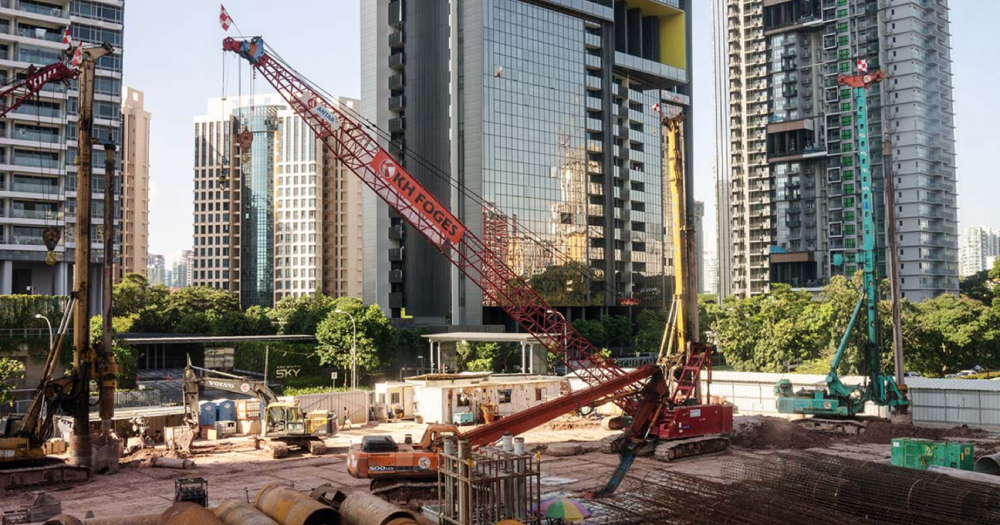All work permit holders and S Pass holders in the construction sector are to be placed on mandatory stay-home notices (SHNs), the Minister of Manpower (MOM) announced on Saturday, April 18.
Take effect from April 20 to May 4
The precautionary move is to ensure there is no further interactions between migrant workers and those outside their residential premises for two weeks.
The SHN for the workers will take effect on April 20, and end on May 4 (both dates inclusive).
According to MOM, as of June 2019, there are 284,300 work permit holders in the construction industry.
SHN applies to all workers and their dependents
The Dependent Pass holders of these worker are also to be placed on SHN.
MOM said the SHN applies to all workers and their dependents in any place of accommodation, or any place which is converted into a place of accommodation on a temporary basis, or otherwise.
It excludes those staying in any dormitory gazetted as an isolation area, or any foreign employee dormitory as defined in the Foreign Employee Dormitories Act 2015.
This is because special arrangements have already been catered for them.
Transmissions at construction worksites may have contributed to rise in Covid-19 cases: MOM
While MOM said the surge in the number of infections among migrant workers have been concentrated in dormitories, contact tracing has suggested that transmissions at common construction worksites "may have contributed to the increase in numbers".
However, the cases detected among workers living outside the dormitories have been low so far.
All those infected and their close contacts have been isolated, MOM said.
SHN will help prevent further Covid-19 spread among workers
MOM said the requirement is made on workers in the construction sector as "the highest number of infected cases have come from this sector and worksite transmissions have been a contributing factor".
The ministry added that the SHNs will "help prevent further transmission of the virus between workers in the sector, across all housing types".
Employment pass (EP) holders are not included in the mandatory SHN as they are "generally less exposed to the worksites and live in non-communal premises", MOM added.
During the SHN period, MOM enforcement officers will conduct regular checks on the workers to ensure compliance to SHN requirements.
Employers to take care of workers' well-being during their SHN
Employers are required to make arrangements for these workers during the SHN period, including the provision of food, and to take care of their well-being.
The workers are advised to immediately consult a doctor if they are unwell.
In addition, employers are required to ensure that the addresses and mobile numbers of their foreign employees registered with MOM are up-to-date.
MOM will take strict enforcement measures against errant employers or employees who do not comply with the SHN requirements, including the suspension of work pass privileges and revocation of work passes.
This is necessary to protect the health and safety of the larger community, MOM said.
Employers required to check on workers' health daily
Employers are also required to check on the health of their foreign employees on SHN daily for reporting to the Building and Construction Authority (BCA).
Employers should advise their workers to seek medical attention promptly if they display any symptoms of acute respiratory infection, such as a cough or runny nose.
On top of checking their own temperature twice daily, workers are also encouraged to monitor the health of their
housemates, and encourage them to see a doctor if they feel unwell.
Employers may seek exemption for employees to carry out essential services
Employers may seek exemption from BCA for their employees to be allowed to carry out essential services such as vector control.
The number of foreign workers granted such exemption to leave their places of residence to perform essential services only may be capped at BCA’s discretion, MOM said.
Top image via Sanjit Das/Getty Images
If you like what you read, follow us on Facebook, Instagram, Twitter and Telegram to get the latest updates.
